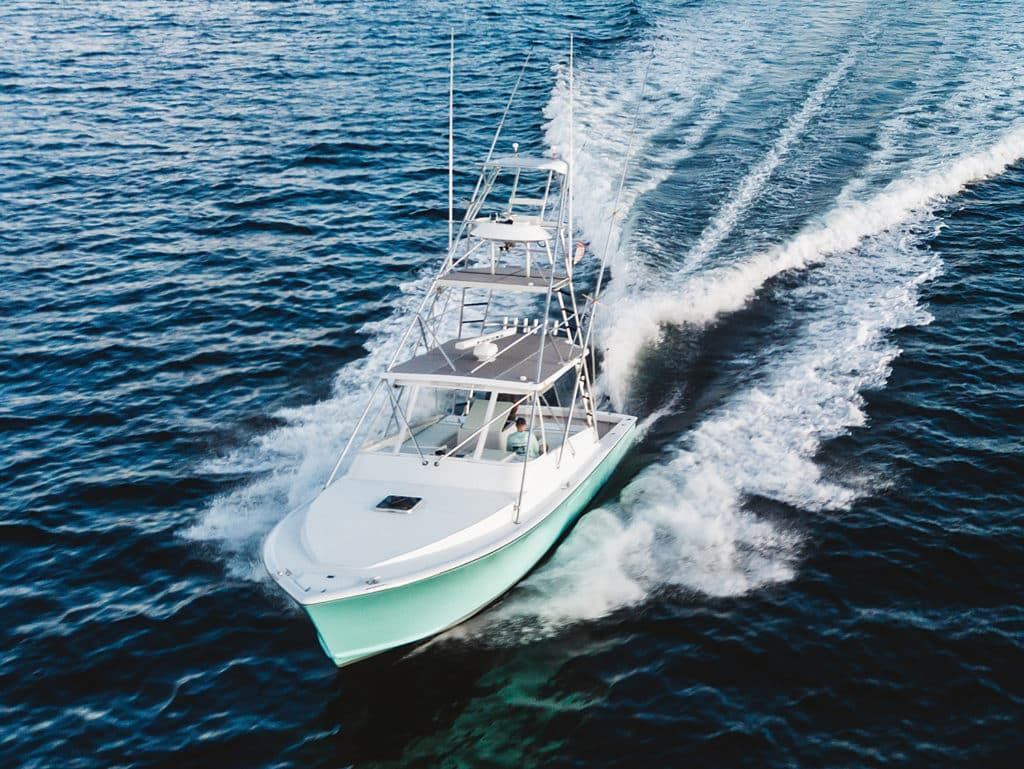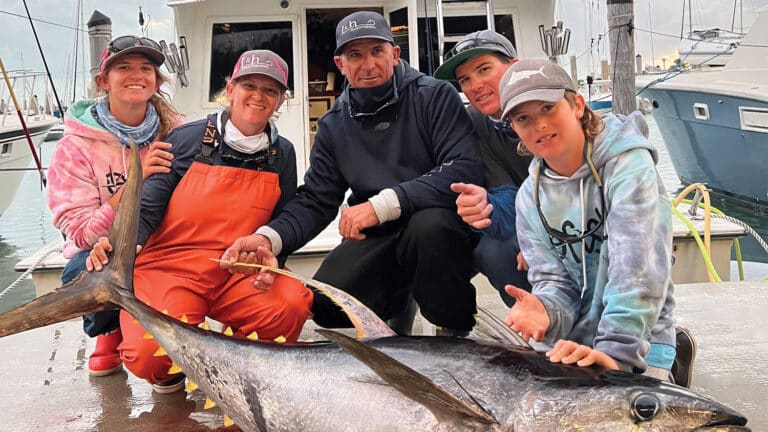
Vessel buyers frequently ask me if they should obtain a state title or document their vessel with the United States Coast Guard. The question typically comes from buyers of large center-consoles and express-style boats under 40 feet; my answer is typically the same in each instance: I almost always recommend Coast Guard documentation when that option is available to the vessel owner.
What Is Documentation?
Coast Guard documentation is performed and managed through the National Vessel Documentation Center, and is a national form of titling or registration, similar to an owner flagging their vessel in a foreign country. The Coast Guard assigns the vessel an official number and provides the vessel owner a document known as a Certificate of Documentation, the original of which should always remain on board the vessel. A major difference between the United States and most foreign jurisdictions is that only US citizens are eligible for Coast Guard documentation.
The documentation itself identifies items such as the vessel name, hailing port, official number, hull-identification number provided by the builder, place of build, owner information, vessel dimensions, and a list of endorsements or restrictions that come along with the issuance of the document. Starting in January 2022, all certificates of documentation for a recreational vessel will be valid for five years, without the option to renew the document for a shorter period of time.
Is My Vessel Eligible?
Essentially any type or size of recreational vessel can be state-titled, but not all vessels are eligible for documentation. The rules of eligibility are based on net tons, which is a measurement of volume, not weight. Vessels under 5 net tons are ineligible.
On the other hand, some vessels are required to be documented. For example, all vessels of 5 net tons or more that are engaged in commercial-fishing activities on the navigable waters of the United States or in the Exclusive Economic Zone, or used in coastwise trade, must be documented, unless they meet a specific exemption.
So how do you know if your boat is 5 net tons? The Coast Guard advises that most boats 26 feet and larger meet the threshold. You can also download an application of simplified measurement from the Coast Guard website, which will automatically calculate a vessel’s tonnage based on the measurements of the length, beam and draft of the vessel.
Why is Documentation Preferable?
There are a few reasons why documentation is typically preferred over a state title. As stated by the NVDC, documentation provides for unhindered commerce between the states, and admits vessels to certain restricted trades, such as coastwise trade and the fisheries. Perhaps more importantly, a Certificate of Documentation issued by the Coast Guard is internationally recognized evidence of nationality, proof of ownership and a vessel’s origin. Though many jurisdictions, including the Bahamas, accept state titles and registrations, Coast Guard documentation is recommended when traveling to foreign ports. The documentation also provides the full and immediate protection of the US military.
The Coast Guard also keeps a thorough record of information from the time a vessel is initially documented until it is deleted from the registry. The information can be requested through the NVDC by ordering a document known as an Abstract of Title. The record identifies each transfer of ownership and the liens and mortgages filed against the vessel. The information recorded is not necessarily definitive or conclusive because it contains only information provided to the Coast Guard, but it remains very useful to buyers and lenders.
Read Next: Meet IGFA president Jason Schratwieser in our interview.
State Registration
There is quite a bit of confusion as to whether owners must still register their boat in the state of principal use if they are documented. Coast Guard documentation is regulated by federal law, while each state has its own separate regulations relating to vessel registration and state taxes. In the past, many states exempted documented vessels from state registration, but most states now require them to register whether they are titled or documented.
Coast Guard documentation provides a few advantages over a state title. There is certainly nothing inherently wrong with a state title; it is essentially no different than titling a vehicle. But in my opinion, an owner should choose documentation if the vessel is eligible, especially if planning to travel to any foreign ports.
Raleigh P. Watson is a contributing author, and a Partner at Miller Watson Maritime Attorneys. This article originally appeared in the February 2022 print issue of Marlin.







